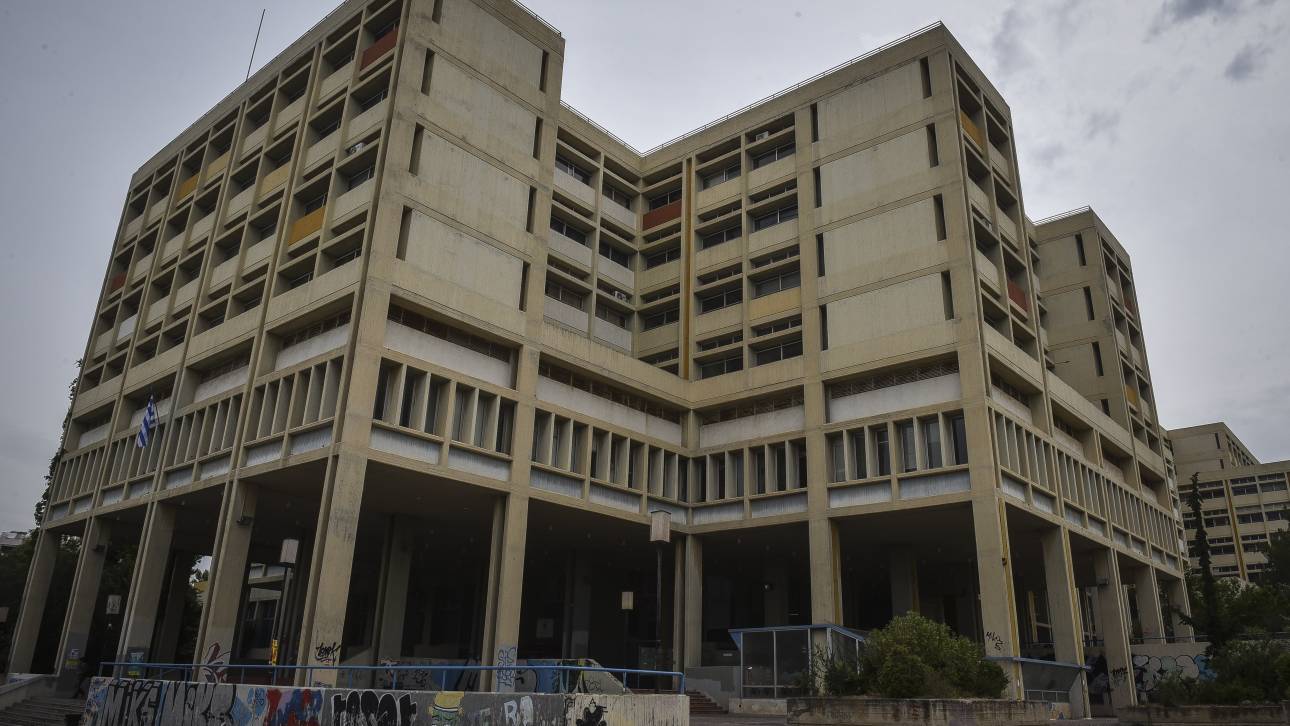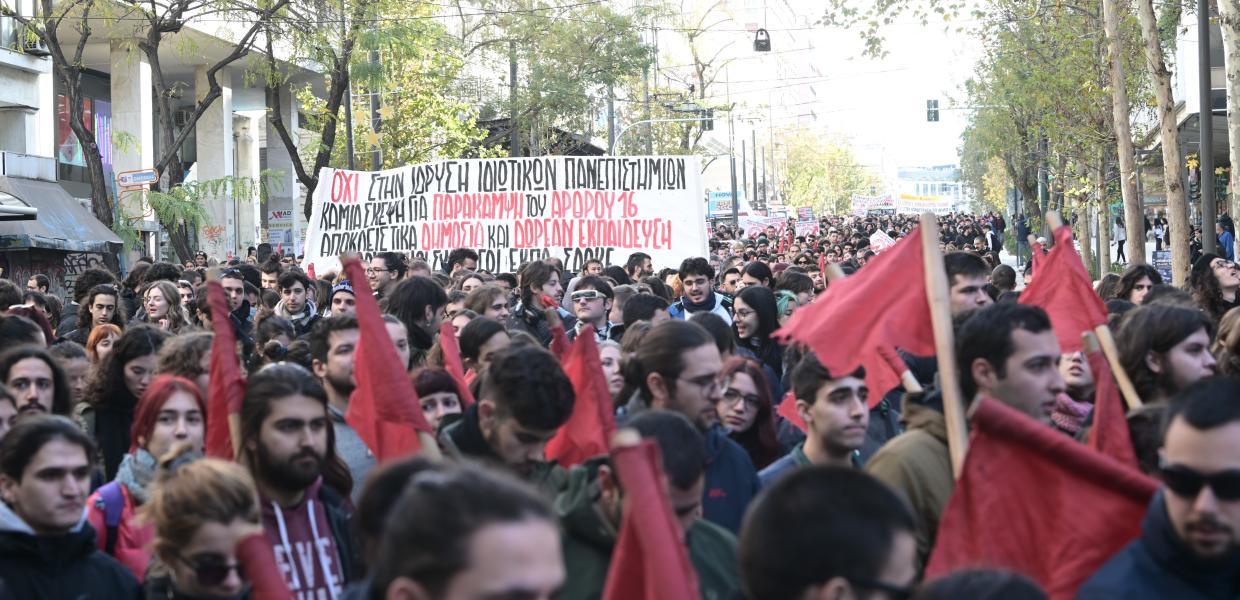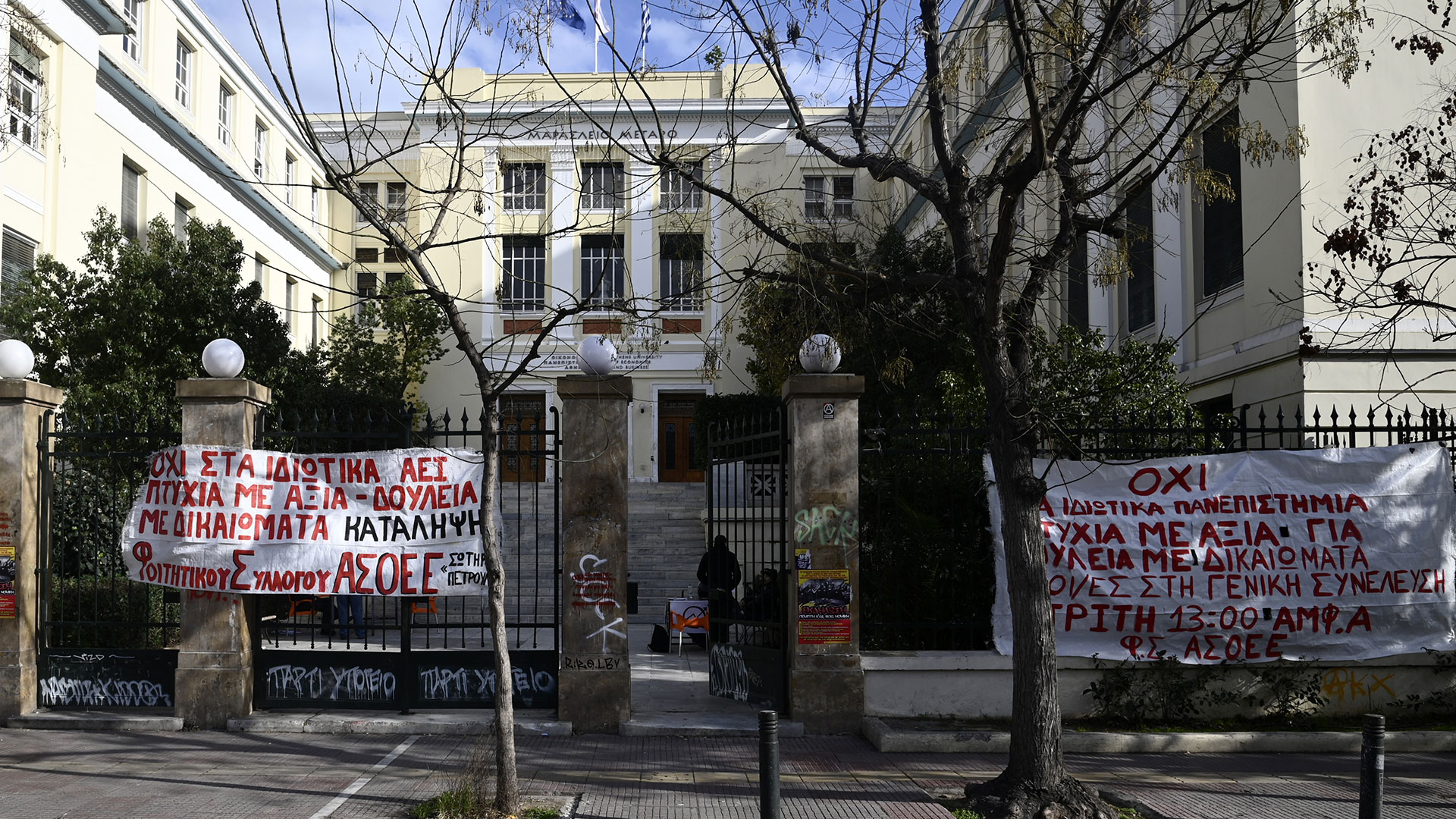By Dimitris Kouvaras,
A strange tug of war is taking place in Greece, provoking ruptures in its academic community and rising tension with the government, whose contentious legislative efforts are in the limelight lately, as my last article on same-sex marriage also attests to. However, unlike the latter example, whose question follows European precedent, this time the issue at stake will no doubt surprise you, if you happen not to be Greek. Not least because in virtually no other Western country has it been presented itself in the form of a dilemma, but as indisputable, self-evident even, reality. What the government plans to do, under the triumphant -yet, as many triumphantly branded political projects, also suspicious- bill titled “Free University”, is to enable the establishment of private universities in Greece for the first time -at least with this degree of official sanction. But wait, why is a bill needed for this -you will ask? Aren’t private -or say non-state- universities righteously a part of a Western liberal country? Well, they are, however not in the Greek case. Before explaining why, I will drop the next question-raising bombshell: the bill (or reaction to it) has had a considerable number of students infuriated, incited public marches, and led to the disruption of the function of state-run universities for a few weeks now. What is going on?
To unravel this peculiarity, which nonetheless raises important political, social, economic, and legal questions, one must first have in mind a few things. Education in Greece is primarily a state affair and has been so since it first begun to spread after the independence in the early 19th century. Private initiatives on all levels were scant until recently, due to the retardedness of the Greek economy, the lack of capital investment, the slimmer higher education market before the Metapolitefsi, when Greece became a liberal democratic state in the mid ‘70s, and, above all, the broadness of the state’s educational sector. The Constitution reflects the ideology of state-sponsored education by firmly dictating that it is its responsibility to foster and finance it. As for higher education, i.e. universities, the state is constitutionally granted a monopoly via Article 16 of the Constitution. However, this is only half the story. Higher education institutes already exist for certain auxiliary, technical, and business-related disciplines, under the name “colleges” instead of universities, whose curricula are usually sanctioned through collaborations with foreign universities and whose diplomas have recently been equated (by the same party), in terms of recognition, with those of their state-run counterparts, with a few exceptions. To anyone who doesn’t understand the subtle legal complications and definitions, this situation would justifiably appear confusing, if not already indirectly bypassing constitutional dictates in all but nomenclature and discipline selection. Essentially speaking, it does, but with a limited scope.

So, what does the government want to do? Essentially, to officialise and broaden the transition towards a higher education sector open to private actors. Specifically, the bill entails the amendment of Article 16 towards the establishment of private non-profit universities, i.e. institutions whose earnings are reinvested in research and infrastructure instead of being apportioned as dividend. Most probably, they will exclusively be branches of already existing foreign universities, while their operation will require at least three departments or “schools” and an investment of a certain amount, of some will be rendered to the state to acquire permission. In contrast with the existing “colleges”, whose function and status will be sustained, university status will enable these institutions to offer the entire range of disciplines, including some of the most prestigious and demanding, such as medicine and law, and diplomas unreservedly equal to those of state institutions. Admittedly, the bill seems to do nothing more than implement what is the European -even global- standard. Perhaps even less than that, given the non-profit requisite, which has disappointed some actors in the education market, namely “college” leaderships. As a result, it would seem counter-intuitive that it has caused so fierce a backlash. If so, whence that formidable reaction and whence the problem?
Universities in Greece are, to many at least, ideologically speaking, intertwined with the Left, bearing historical symbolisms as refuges of non-conformism and reaction to state oppression, real or imagined, acquired through the memories of the student movement that bravely battled the military dictatorship -known as Junda– in 1974. They are also heavily politicised, with omnipresent student unions representing the entire political spectrum, but especially the Left or far-Left, including socialist-communist and anarchist ones. Such groups are immersed in blatant anti-government political action, taking decisions through student councils deemed to reflect the majority view, which, however, only depict the opinions of a politically invested minority. This de facto quasi-institutionalised “basis” -if I may use the Marxist term- merged with the “superstructure” of a democratic ideology involving freedom of access to education for everyone, whose resolution is to safeguard its public character against the intrusion of capital and profit.
Free and public education is indubitably an immensely sensitive ideological locus, especially since the financial crisis of the 2010s, which highlighted inequalities and seriously challenged the living standards of millions of families. Hence, it resonates with a much greater portion of students, who are faced not only with financial hardship -or just lack of affluence-, but also with an underfunded public higher education with insufficient infrastructure that hardly ensures employment in a dwindling or stagnant market full of professional graduates. Especially during the last decades, (public) higher education has inflated in size, maybe even as a means of delaying immediate unemployment after school graduation, creating a saturated market of professionals disproportionate to existing job vacancies. This trend is what the current government tried to reverse, provoking public bitterness. If one includes in the mix some widespread misconceptions (often propaganda-based) about the way private institutions run sparking doubts on the credibility of graduation from these, as paid rather than worth, one can understand why the bill has caused such a reactionary wave, as well as confusion on the state of affairs.

The reaction has taken a characteristically Greek form: katalipsi, i.e. the seizure of a public space -now universities- and the impediment of its usual function as a means of protest, a practice de facto legitimised by historical precedent and tolerance from the authorities, although de jure illegal. However, this is a problematic situation, given that decisions are still taken by a minority in the student councils, in which often divergent opinions are met with heavy -even insulting- criticism. Not only that, but ideological radicalism has become endemic, distorting reality and hindering dialogue. Some even think that they revive the old days of the student insurgence against the Junda. The prolongation of these seizures threatens to disrupt the winter examination period, causing further division, among their proponents and those who want a smooth continuation of their studies. So, given the dubious and mislead form of the current reaction, it’s timely to ask: is there any actual reason for any form of reaction -or scepticism- against the bill?
Surprisingly, the answer is yes -at least for me. The actual problem relates to a more subtle -yet fraudulent- element in government rhetoric, which does not relate to the private universities’ establishment. As far as this is concerned, it is a reasonable thing to happen in a liberal democracy and it should raise no questions on credibility, given that they meet certain requirements. The issue lay with the fate of public education, which the government advertises will be enhanced through mutual antagonism with non-profit private ones. This is unlikely to happen, given that the first depends on public sponsorship, which the state has repeatedly proven incapable or unwilling to administer. Hence, competition with private institutions won’t be fare, which raises questions on equity. After all, the most plausible incentive of this broadening of the already saturated higher education market is the aim of confining its public chunk, with all the consequences this might have in a financially weak environment lacking alternative specialisation routes and employment opportunities. Unfortunately, this pragmatic issue is missed by the current reaction to the bill, which is blind to all but an imaginary and exaggerative battle against the vague notion of “capital”, and a demonization of private institutions per se.
References
- THE CONSTITUTION OF GREECE. HELLENIC PARLIAMENT. Available here
- Greece the Only Western Country that Bans Private Universities. Greek Reporter. Available here




